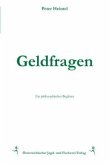For Michel Serres, economic crises are earthquakes caused by societal tectonic plates. The current crisis erupted because of the widening discrepancy between major social changes and institutions that have remained the same since WWII.
Serres, one of the first to bring nature into the political, writes, "To destroy, kill, exploit is worthless. In the long run, it means destroying ourselves." At a time when the world population has grown so much that it is exhausting natural resources and the environment, we need to rethink cultural, social, and political dynamics. Serres argues that geopolitics and economics will no longer be a two-player game, between West and East, for example, but a three-player one, in which is Earth will be the third partner.
This book is one of hope as it calls for a new world and extols the importance of science for our future and political institutions. Here, Serres demonstrates an optimistic outlook in a clear and luminous language that offers new paths for reflection and, ultimately, a better life for Earth and its inhabitants.
Hinweis: Dieser Artikel kann nur an eine deutsche Lieferadresse ausgeliefert werden.
Serres, one of the first to bring nature into the political, writes, "To destroy, kill, exploit is worthless. In the long run, it means destroying ourselves." At a time when the world population has grown so much that it is exhausting natural resources and the environment, we need to rethink cultural, social, and political dynamics. Serres argues that geopolitics and economics will no longer be a two-player game, between West and East, for example, but a three-player one, in which is Earth will be the third partner.
This book is one of hope as it calls for a new world and extols the importance of science for our future and political institutions. Here, Serres demonstrates an optimistic outlook in a clear and luminous language that offers new paths for reflection and, ultimately, a better life for Earth and its inhabitants.
Hinweis: Dieser Artikel kann nur an eine deutsche Lieferadresse ausgeliefert werden.








